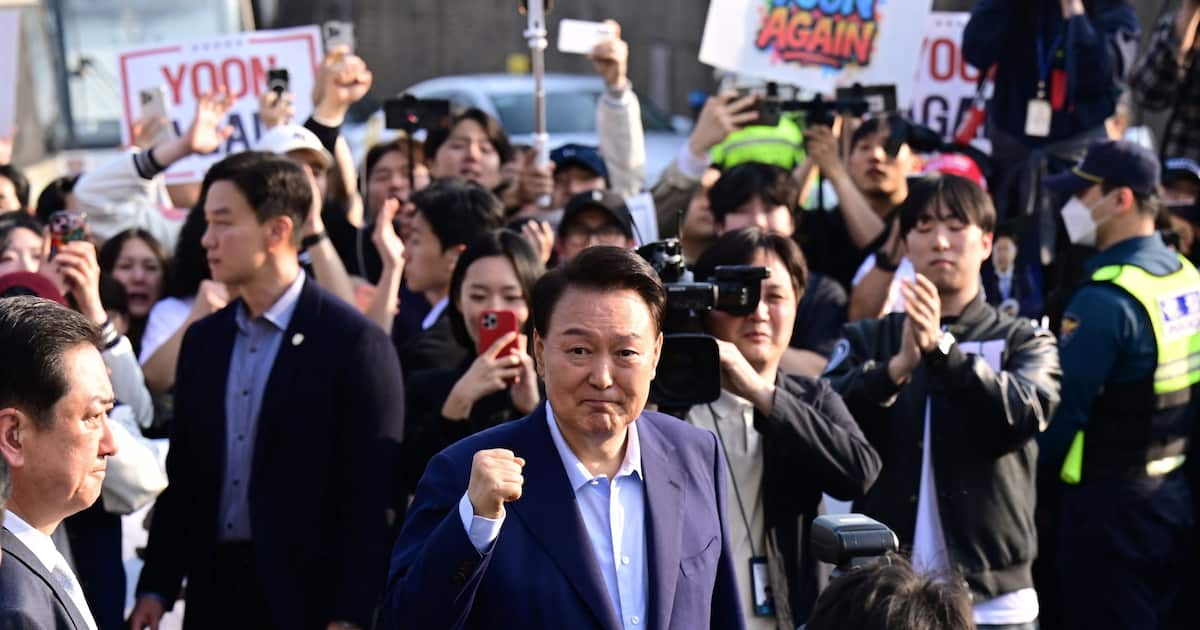Martial Law, Yoon, and Korea's Conservative Path: A Deep Dive into South Korean Politics
South Korea's political landscape has shifted dramatically under President Yoon Suk-yeol, leading to renewed discussions about the country's history with martial law and its potential implications for the future. This article delves into the complexities of this situation, exploring the interplay between President Yoon's conservative policies, historical anxieties surrounding martial law, and the ongoing debate about South Korea's trajectory.
The Shadow of Martial Law: A Historical Context
South Korea's history is punctuated by periods of martial law, most notably under Park Chung-hee's authoritarian rule. These periods, characterized by suppressed freedoms and curtailed democratic processes, remain deeply etched in the national memory. The legacy of this authoritarian past continues to shape contemporary political discourse and fuels anxieties about potential backsliding.
Key Events and their Impact:
- Park Chung-hee's Era (1961-1979): This period saw extensive use of martial law, leading to significant human rights abuses and the suppression of dissent. The economic development achieved during this time is often juxtaposed with the authoritarian methods employed.
- The Gwangju Uprising (1980): This pivotal event, a pro-democracy movement brutally suppressed by the military, remains a stark reminder of the dangers of unchecked power and the importance of democratic safeguards. Understanding the Gwangju Uprising is crucial to comprehending current political sensitivities.
- The Transition to Democracy: The subsequent decades witnessed a gradual transition towards a more democratic South Korea, but the scars of past authoritarianism persist.
President Yoon Suk-yeol and the Conservative Turn
President Yoon Suk-yeol's election marked a significant shift towards conservatism in South Korean politics. His administration's policies have sparked debate regarding their potential impact on democratic norms and societal freedoms.
Key Policy Areas and their Implications:
- National Security: A strong emphasis on national security, particularly in relation to North Korea, has dominated President Yoon's agenda. While understandable given the geopolitical context, some critics express concerns about potential limitations on civil liberties in the name of security.
- Economic Policies: Yoon's administration's economic policies, focused on deregulation and market liberalization, have also drawn criticism. Concerns exist about the potential for widening socioeconomic inequality and the impact on vulnerable populations.
- Historical Revisionism Debates: Discussions surrounding historical narratives, including those related to the authoritarian past, have also become increasingly contentious under President Yoon's leadership. This has led to anxieties regarding the potential for a re-evaluation of past human rights abuses.
The Martial Law Debate and its Relevance Today
While there's no immediate threat of martial law being declared in South Korea, the very discussion highlights the fragility of democratic institutions and the enduring legacy of authoritarianism. The fear is not simply the re-imposition of martial law itself, but rather the erosion of democratic norms and the potential for creeping authoritarianism.
Concerns and Counterarguments:
- Concerns: Critics argue that certain policies under President Yoon's administration exhibit authoritarian tendencies, potentially paving the way for future abuses.
- Counterarguments: Supporters maintain that the president's policies are necessary for national security and economic stability, and that concerns about authoritarianism are overblown.
The Future of South Korea: Navigating a Complex Path
South Korea's future trajectory depends on its ability to reconcile its historical past with its aspirations for a robust and vibrant democracy. The ongoing debate surrounding President Yoon's policies and the legacy of martial law underscores the importance of continued vigilance, robust democratic institutions, and a commitment to upholding human rights.
Further Reading: For more in-depth analysis, you can explore resources from reputable news organizations like the Korea Herald, the Chosun Ilbo, and international outlets such as the BBC and the New York Times.
Call to Action: Stay informed about South Korean politics and engage in respectful dialogue to ensure the preservation of democratic values and human rights. Understanding the historical context is crucial for shaping a better future.
